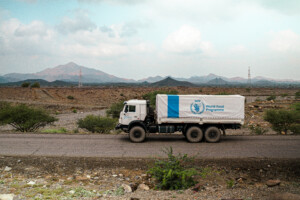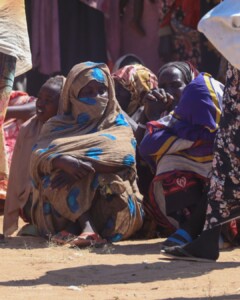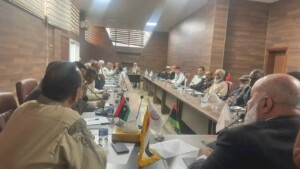Sudan OCHA bulletin 31: WFP switches from emergency to recovery operations
After exclusively operating as an annual Emergency Operation for the past eight years, the World Food Programme (WFP) has begun a two-year Programme for Relief and Recovery Operations (PRRO), from July 2015 to June 2017. 800 South Sudanese refugees who recently arrived in the area of Abyei require assistance. Some 38,000 displaced in Central Darfur’s Jebel Marra remain without aid since May this year. Aid organisations continue to respond to the needs of some 4,000 displaced in South Darfur’s Kalma camp, affected by heavy rains last month.
After exclusively operating as an annual Emergency Operation for the past eight years, the World Food Programme (WFP) has begun a two-year Programme for Relief and Recovery Operations (PRRO), from July 2015 to June 2017. 800 South Sudanese refugees who recently arrived in the area of Abyei require assistance. Some 38,000 displaced in Central Darfur's Jebel Marra remain without aid since May this year. Aid organisations continue to respond to the needs of some 4,000 displaced in South Darfur’s Kalma camp, affected by heavy rains last month.
The Office for the Coordination of Humanitarian Affairs (OCHA) in Sudan reports in its latest weekly bulletin that the new WFP programme targets 5.2 million conflict-affected and food insecure people, including displaced, refugees, malnourished children, pregnant and nursing women, and school-aged children – of whom 69 percent are in Darfur.
The WFP plans to provide them with 493,256 metric tons of food assistance throughout the period, as well as cash vouchers totalling $101 million. Overall requirements for the new programme stand at $693 million.
While the PRRO maintains a large relief component (60 percent), it is complemented by an early recovery component (40 percent), the OCHA bulletin reads. The programme aims at early recovery and resilience building of conflict- or crisis-affected communities by helping them to re-establish livelihoods and stabilise food security.
Abyei
Some 800 South Sudanese living in Gogrial county, Warrap state, have arrived in the southern part of Abyei since 11 June. They fled cattle raids and inter-tribal fighting by Dinka herders. The majority of the refugees, all Dinka, are women and children.
The local branch of Caritas and the host community have provided some initial support. Local authorities have been unable to provide any food, so the refugees are relying mainly on foraging fruits and edible leaves in the area. The area has not been cleared by demining operations, making foraging potentially risky.
Aid partners, including UN agencies and international NGOs, plan to complete the registration process, after which distribution of aid supplies can begin.
Some 38,000 displaced in Central Darfur's Jebel Marra need aid
According to the Sudanese Humanitarian Aid Commission (HAC), the humanitarian situation of thousands of newly displaced people in northern Jebel Marra’s Fanga Suk, Abunga and Niscam villages, as well as in Rokoro town is dire.
HAC reported that an estimated 38,000 displaced are in need of emergency shelter and household supplies, water, sanitation as well as health and education services.
The people fled their homes between February and May following fighting in the area, and have yet to receive assistance. The ongoing rainy season has further deteriorated the already precarious living conditions.
As there are no functioning health facilities in the areas, the displaced have to seek health services in El Fasher and Tawila towns, covering a distance of approximately 60 kilometres. The people have to collect water from unsafe water sources such as valleys and springs.
Aid organisations have not been able to access northern Jebel Marra since 2006. Requests for access were denied by the authorities because of the insecure situation and poor road conditions.
UXO in western Jebel Marra
According to local communities and aid organisations in Nierteti in Central Darfur, explosive remnants of war (ERW) and unexploded ordnance (UXO) are a large threat to children and farmers in the areas of Guldo, Golo and Rokoro.
The people in these areas have asked aid organisations for assistance, as no ERW/UXO awareness raising or clearance has taken place in these areas this year.
Ongoing response to people affected by floods in Kalma camp
Aid organisations continue to respond to the needs of some 780 families (about 4,000 people) affected by heavy rains on 16 July in South Darfur’s Kalma camp for the displaced.
The American Refugee Committee (ARC), Care International Switzerland (CIS) and Oxfam have backfilled and disinfected 478 household latrines. ARC is also constructing new household latrines in the camp, OCHA reports in its bulletin. CIS is rehabilitating and disinfecting hand pumps in the camp.
The aid agencies are working with HAC and community leaders to facilitate the relocation of the people living in flood-prone areas to more suitable locations in the camp.
Read the full weekly bulletin here











 and then
and then